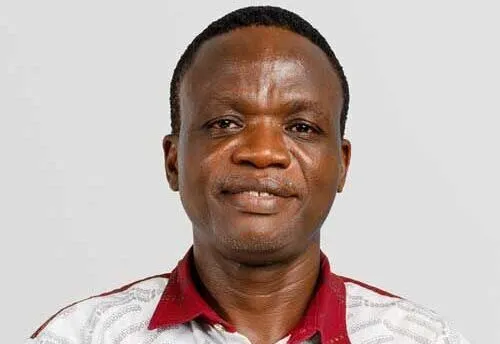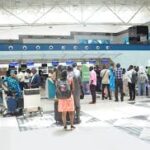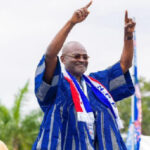ACCRA — The founding President of the policy think tank Africa Policy Lens, Dr. George Domfe, has firmly rejected assertions that Ghana’s severe economic downturn in 2022 stemmed from mismanagement by the then-government, attributing the crisis instead to overwhelming global shocks beyond local control. Speaking on Asaase Radio’s Business Drive on September 23, 2025, Domfe argued that such claims ignore the unprecedented worldwide turmoil, insisting that “no economist can attribute the 2022 economic turmoil to mismanagement.”
Dr. Domfe, a development economist and senior research fellow at the University of Ghana’s Centre for Social Policy Studies, was responding to ongoing critiques from opposition figures and analysts who have pinned the cedi’s 50% depreciation, inflation peak above 54%, and debt default on the New Patriotic Party (NPP) administration under former President Nana Akufo-Addo. He highlighted the local currency’s stability—trading between GH¢4.2 and GH¢6.2 for 61 months prior to 2022—as evidence of sound pre-crisis management, the longest such period since independence in 1957. “These factors pushed the demand for foreign currencies to uncontrollable levels,” Dr. Domfe explained, pointing to external pressures that overwhelmed fiscal buffers.
The 2022 implosion, which triggered Ghana’s 17th IMF bailout, was exacerbated by the lingering effects of the COVID-19 pandemic and the Russia-Ukraine war, Dr. Domfe reiterated in earlier comments on Peace FM’s Kokrokoo in June 2025. He noted that over 50 countries sought IMF assistance that year—an all-time high—while freight charges surged more than 300%, inflating import costs and fueling global inflation. Crude oil prices, critical for Ghana’s import bill, rocketed from $72 per barrel in January 2022 to $121 mid-year, a direct fallout from the invasion. “Germany recorded its highest inflation in 70 years, the United States in 40 years, and the UK in nearly four decades. Ghana couldn’t have been the only exception,” Domfe said, challenging critics to propose viable alternatives under those constraints.
Dr. Domfe’s defense extends to crediting former Finance Minister Ken Ofori-Atta for laying the groundwork for current stability, including a 37% debt haircut equivalent to $5 billion and $4.3 billion in service savings through bondholder deals. Under President John Dramani Mahama‘s administration since January 2025, the economy has rebounded: The cedi appreciated 21% year-to-date, inflation eased to 11.5% in August, and GDP expanded 6.3% in Q2, driven by services and agriculture. Yet, Domfe urged broadening the tax base to include the informal sector—employing 80% of Ghanaians—rather than hiking rates on formal businesses, warning that high interest rates and utility tariffs are eroding competitiveness.
This narrative counters the NDC’s campaign rhetoric, which blamed NPP “economic vandalism” for the crisis, leading to their 2024 victory. Dr. Domfe, however, framed the NPP’s loss as part of a global wave: “56 political parties in government lost elections between 2022 and 2024 because of the challenges faced by the global economy.” He dismissed identity politics, like claims tying the defeat to flagbearer Mahamudu Bawumia’s Muslim faith, as distractions from structural realities.




